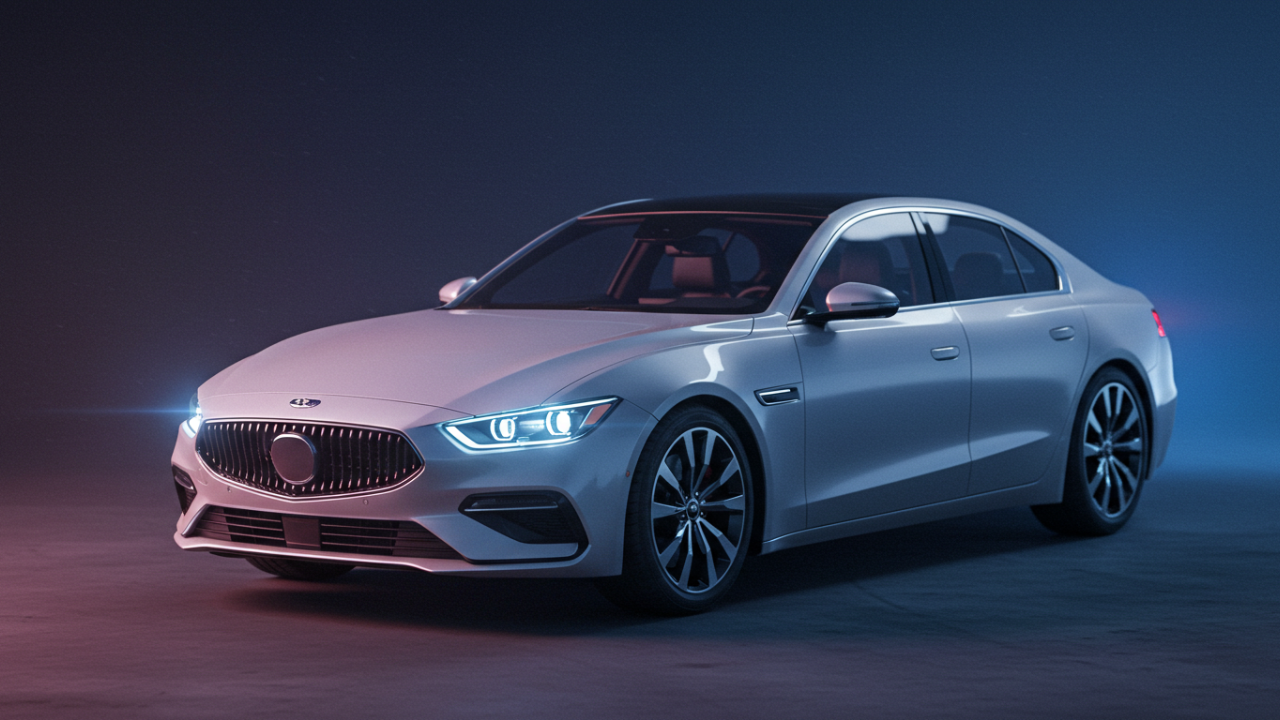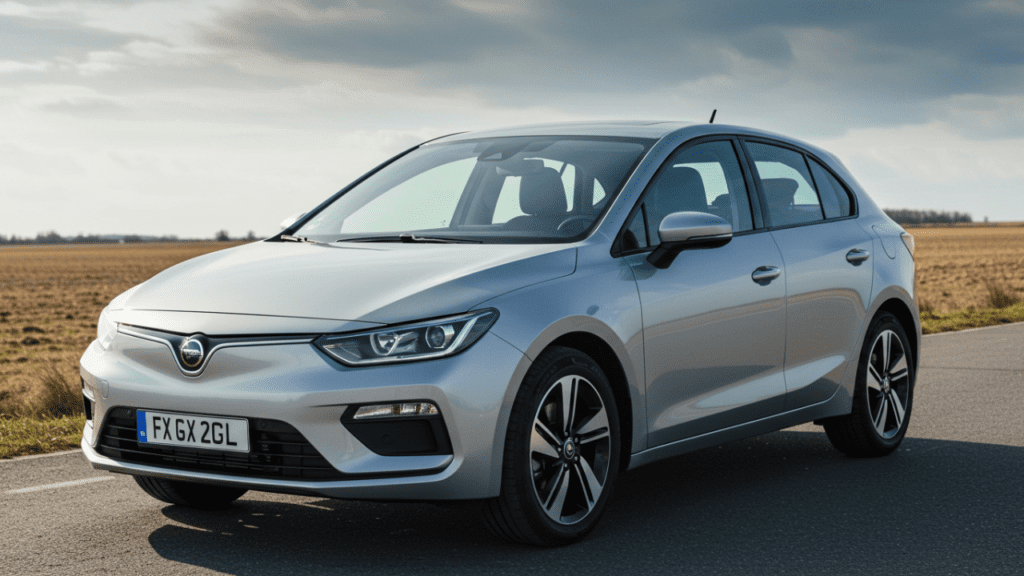Hydrogen vehicles and electric cars have captured the attention of many as society shifts to cleaner and more sustainable forms of energy.
While both technologies are estimated to be more sustainable than traditional gasoline cars, there are questions surrounding the competition between both alternatives, particularly, will hydrogen cars beat EVs in 2025? In this article, we will analyze both technologies, their advantages, challengWill hydrogen cars beat EVs in 2025es, and the possibility of surpassing the other in the near future.
What’s the Big Deal About Hydrogen Cars and EVs?
The global strive of lowering carbon emissions have artificially increased the demand of alternative fuel vehicles. Electric vehicles are a type of modern car that has seen immense growth due to it relying entirely on electricity stored in batteries, is easy to use, increases economic output, lowers emissions, and has an ever-expanding supporting infrastructure.
Unlike traditional EVs, hydrogen cars have fuel cells that use a clean process of generating electricity from hydrogen, offering some advantages over EVs.
Despite the rapid advancements in technology on both sides, the question of hydrogen cars surpassing EVs still lingers, so will it be in 2025?
Let’s take a deeper look into both hydrogen and electric vehicles, the advantages and disadvantages of each, and their prospective outcomes for the next few years.
Hydrogen Cars: The Basics
What Are Hydrogen Cars?
Hydrogen cars are a type of automobile that uses hydrogen gas to make electricity to spin an electric motor. This is made possible through fuel cells. A fuel cell generates electric energy by oxidizing hydrogen with oxygen, forming water vapor. Steam is the only harmful emission from hydrogen cars, which is good for the environment. Since the only byproduct released is steam, hydrogen vehicles are eco-friendly.
How Hydrogen Cars Work
Hydrogen is stored in high-pressure tanks located within the vehicle. Hydrogen moves from the tank to the fuel cell, where it meets oxygen from the air. After this reaction, electricity is created, and the motor is fed this electricity to move the vehicle.
Unlike traditional combustion engines, the fuel cell system is much more efficient; however, there are some limitations, for example, the necessity to have systems to create, store, and transport hydrogen.
Current State of Hydrogen Cars
At the moment, there are but a handful of models of hydrogen-fuelled cars. The more popular models comprise of:
-
Toyota Mirai: The Mirai is one of the most widely available hydrogen cars and is well known for its long range and fast refueling time.
-
Hyundai Nexo: This is yet another top contender in the hydrogen car market, providing impressive range as well as quick refueling capabilities.
While these vehicles are new to the market, the development of hydrogen cars has attracted automakers such as Toyota, Hyundai and Honda, all investing enormously in this technology.
Electric Vehicles (EVs): The Basics
What Are Electric Vehicles?
Electric vehicles, or EVs, are vehicles that run solely on electricity and are stored in large batteries. These vehicles do not use petrol, diesel, and do not produce tailpipe emissions. Instead, an electric motor and battery pack power an EV.
In general, EVs are charged at home through home chargers or in specialized electric charging stations. These stations provide the necessary electricity to recharge the vehicle’s battery, allowing the car to continue running.
How EVs Work
The operation of an Electric Vehicle (EV) involves drawing power from its battery to run the motor. While pressing the accelerator, the driver generates power with an electric motor to move the car. The EVs can be charged at home (Level 1), at public charging stations (Level 2), and DC fast chargers, depending upon available charging infrastructure.
Popular EV Models and Manufacturers
The electric vehicle market has exploded in recent years. Popular models include:
-
Tesla Model 3: Arguably one of the most favored, it is known for its exceptional long range and advanced technology features.
-
Chevrolet Bolt EV: A more budget-friendly choice with remarkable range and performance.
-
Nissan Leaf: Reputed to be one of the first mainstream electric cars, it has gained a commendable reliability.
With the recent surge in demand for EVs, manufacturers are Tesla, Volkswagen, GM, and BMW that are investing heavily in the development and production of electric vehicles.
Advantages of Hydrogen Cars
Faster Refueling Times
A prominent benefit of hydrogen cars is the economical time spent on re-fueling. The duration it takes to charge an electric vehicle (EV) using a standard home outlet is several hours, whereas, hydrogen cars require only 5 minutes for refueling at a hydrogen refueling station. This incredible efficacy tremendously augments the practicality of hydrogen cars for long-distance travel.
Longer Driving Range
Compared to most EVs, hydrogen vehicles provide more range. The hydrogen-powered Toyota Mirai, for example, can drive for over 400 miles on a full tank. This surpasses many EVs, particularly in colder regions where the range is notably shorter.
Lower Weight
Because hydrogen vehicles don’t rely on heavy batteries, they are generally lighter than EVs. Instead, they use a fuel cell and high-pressure hydrogen tanks. This increases the efficiency of hydrogen cars for larger vehicles, such as buses and trucks.
Environmental Impact
The clean emissions of hydrogen vehicles is unmatched, with only water vapor being released. This is more environmentally friendly than traditional vehicles that emit harmful toxins. When hydrogen is derived from renewable sources, it could potentially be more environmentally friendly than electricity powered EVs.
Advantages of Electric Vehicles (EVs)
Convenient Charging Infrastructure
One of the most cited advantages for EVs is the constantly growing charging infrastructure. The US already has thousands of charging stations, with the number constantly increasing. Many homeowners also have the option to install a Level 2 charging station in their garage.
Lower Costs Over Time
EVs and gasoline vehicles have ach almost the same upfront costs, but an electric vehicle is cheaper to maintain. An internal combustion engine has more moving parts, sequentially raising the cost of wear and tear. EV’s do not require oil changes, as well as have lower brake wear through regenerative braking systems.
EV owners are able to take advantage of government stimulus in the form of tax credits, enabling the offsetting of the initial purchase stimulus.
Innovations in Battery Technology
Batteries are heavily invested to improve their range and charging time. New solid-state batteries will change the industry due to higher energy density and increased charging speed. It is safe to say that the range of electric vehicles in the operating enviorment will increase due to these breakthroughs.
The Challenges of Hydrogen Cars
Limited Refueling Stations
Lack of hydrogen fuel stations is a primary disadvantage of hydrogen fueled cars. Unlike charging stations for electric cars, hydrogen fueled cars don’t have a lattice of stations that are usable. Most hydrogen refueling stations in the US are settled within California, containing the mobility of people that use hydrogen cars in the other states.
Hydrogen Production Challenges
Producing hydrogen can be tough due to the work needed to be completed. Hydrogen production comes from natural gas currently, which is a non-renewable source. This impedes the ecological advantages of hydrogen-powered vehicles.
But progress in the production of green hydrogen—which derives from renewable sources such as wind or solar energy—is gradually making hydrogen production more eco-friendly.
Storage and Transportation Issues
Storing hydrogen necessitates specialized tanks, as it must be kept under high pressure or extremely low temperatures. This adds to the difficulty of transporting and storing hydrogen when compared to electricity. Moreover, the complex infrastructure and technical expertise required for safely handling hydrogen add to the challenges.
Higher Costs
Generally, hydrogen vehicles are more expensive than EVs. The high production cost of fuel cells and hydrogen storage tanks, along with the added price for consumers, drives up the cost of hydrogen vehicles. This could hinder the adoption of hydrogen vehicles in the near future.
The Challenges of Electric Vehicles (EVs)
Battery Disposal and Recycling
The increasing number of electric vehicles on the road concurrently raises questions about the disposal and recycling of used batteries. If not disposed of properly, lithium-ion batteries, which are commonly used in electric vehicles, pose environmental threats. While improving recycling technologies is the goal, it continues to be a challenge.
Long Charging Times
Despite the expansion of charging infrastructure, the time required to charge electric vehicles remains longer than hydrogen refueling. Even fast-charging stations can take 30 to 60 minutes for a complete charge. Consequently, this makes electric vehicles less favorable for long-distance travel in comparison to hydrogen cars that only take a few minutes to refuel.
Range Anxiety
Despite the expansion of charging infrastructure, the time required to charge electric vehicles remains longer than hydrogen refueling. Even fast-charging stations can take 30 to 60 minutes for a complete charge. Consequently, this makes electric vehicles less favorable for long-distance travel in comparison to hydrogen cars that only take a few minutes to refuel.
Technological Innovations Driving Both Hydrogen and EVs
Hydrogen Fuel Technology Advancements
Transformations in the processes of producing green hydrogen power and electrolyzers, alongside more refined fuel cells, are significantly improving the efficacy and environmental sustainability of hydrogen cars. Additionally, other companies have shifted their concern towards hydrogen, and are aiming to lessen the expenditure required for constructing refueling stations to make them cheaper and available at numerous locations.
EV Battery Innovations
The upcoming generation of electric vehicles (EVs) is anticipated to have solid-state batteries, which are thought to deliver improved performance in energydensity, charging speed, and energy efficiency. Due to this increment in aid for overcoming challenges such as restricted range and prolonged charging durations, many existing problems with EVs might improve.
Furthermore, technologies such as wireless charging, vehicle-to-grid systems tagged alongside solid-state batteries could render charging exceptionally accessible.
Market Trends and Consumer Preferences
Consumer Adoption
EVs currently sit atop the market when it comes to user preference. Sales continue to increase as more people are educated on their cost savings and environmental advantages. On the other hand, hydrogen powered cars are not appealing to many consumers at the moment because of the limited access to hydrogen refueling stations and higher costs.
Government Support and Incentives
Both fuel types are being supported by governments across the globe. For example, in the U.S., EV purchasers qualify for tax credits, and some other states are funding the development of hydrogen refueling stations.
You can also read Best affordable electric cars coming in 2025
My Opinion| The Road Ahead for Hydrogen Cars and EVs
Progressing toward 2025, one can expect electric vehicles to take the lead when it comes to the competition for sustainable transportation. However, hydrogen powered cars will still hold a subset of the market where they will light up selling points due to unique advantages. Without a doubt, the success of both technologies will depend on continuous innovation, infrastructure, government backing, and further support.
The transportation industry has an innovative path ahead, and both hydrogen and electric powered vehicles will take the lead.

